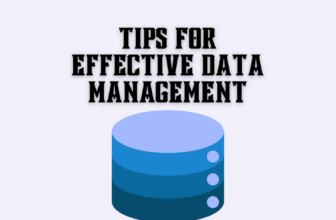
B2B sales can be a complex and challenging process. There are various hurdles that sales professionals encounter along the way. As a business in the B2B space, you need to understand these sales challenges. You also need to find the most effective strategies to overcome them if you are to sell more. Well, here are some common B2B sales challenges and tips on how to overcome them:
Understanding Customer Needs
B2B customers have specific needs and expectations, often requiring tailored solutions. It is, therefore, important to invest time in researching and understanding your customers. their industries, pain points, and goals. Engage in active listening during sales interactions to uncover their needs and provide relevant solutions.
Adapting to Changing Buyer Behaviour
Buyer behavior in B2B sales has evolved, with customers relying more on online research and peer recommendations. You will need to adapt to the changing behavior by embracing digital marketing and sales strategies. Develop a strong online presence through content marketing, social selling, and online engagement. Provide valuable and educational content that addresses customer pain points. Also, stay updated with the latest trends and best practices in digital marketing to meet buyers where they are.
Difficulty in Generating Quality Leads
Generating high-quality leads is often a major challenge in B2B sales. To counter it, focus on targeted marketing efforts and utilize data analytics to identify potential leads. Engage in networking activities such as attending industry events and holding comprehensive lead generation campaigns. Additionally, leverage content marketing and social media to build brand awareness and attract relevant prospects.
Long Sales Cycles
B2B sales cycles are typically longer and more complex compared to B2C. To navigate this challenge, develop a thorough understanding of the buyer’s journey and decision-making process. Build strong relationships with key stakeholders and decision-makers, provide valuable insights and solutions, and demonstrate a clear ROI to accelerate the sales cycle.
Handling Multiple Decision-Makers
B2B purchases often involve multiple decision-makers and stakeholders. You can work around this challenge by identifying and engaging with all relevant parties early in the sales process. Understand their needs, concerns, and motivations, and tailor your sales approach accordingly. Build consensus by addressing individual concerns and presenting a unified solution that meets the requirements of all stakeholders.
Competition and Differentiation
In a competitive B2B market, standing out from the competition is crucial. Differentiate your offerings by highlighting unique features, demonstrating thought leadership, and showcasing case studies or testimonials that validate your value proposition. Invest in continuous market research to stay informed about industry trends and adapt your strategies accordingly. Develop strong relationships with existing customers to generate referrals and positive word-of-mouth.
Handling Objections
Objections are a common hurdle in B2B sales. Customers may have concerns regarding budget constraints, internal policies, or competitive alternatives. Successful sales professionals overcome objections by being prepared. Anticipate objections and develop persuasive responses that address the customer’s specific concerns. Showcase the value and return on investment (ROI) of your solution through case studies and testimonials. By addressing objections with confidence and providing tailored solutions, you can alleviate customer concerns and move the sales process forward.
Adapting to Technological Advances
The B2B sales landscape is constantly evolving with technological advancements. Embrace technology to streamline your sales processes, automate repetitive tasks, and enhance communication and collaboration. Leverage CRM systems, sales analytics tools, and social selling platforms to stay organized, track progress, and gain insights that drive informed decision-making.
Building Trust and Credibility
In B2B sales, building trust and credibility is paramount. Customers want to work with vendors they perceive as reliable and knowledgeable. This is why you should establish yourself and your company as industry experts. For example, you can do this by sharing valuable content, such as whitepapers, blog posts, and webinars, that educates prospects and positions your company as a trusted advisor. Leverage testimonials, case studies, and references from satisfied clients to demonstrate your track record of success. By consistently delivering value and showcasing your expertise, you can build trust and credibility, establishing long-term relationships with customers.
Continuous Learning and Skill Development
B2B sales is a dynamic field, and continuous learning and skill development are essential for success. Invest in sales training programs, attend industry conferences and seminars, and stay updated with the latest trends and best practices. Sharpen your communication, negotiation, and relationship-building skills. Seek feedback from customers and colleagues to identify areas for improvement. By continuously learning and developing your skills, you can stay ahead of the curve and overcome sales challenges more effectively.
Conclusion
The B2B landscape presents unique obstacles that a sales professional must overcome to succeed. The quest to navigate the complexities of B2B sales and achieve success is best won by focusing on targeted lead generation, understanding the buyer’s journey, building relationships, and embracing technology. Continuous learning and adapting to changing market dynamics are also essential for long-term sales growth.






